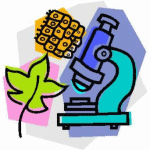Biology
|
21 january 2015 17:48:43 |
| The microbiome mutiny hypothesis: can our microbiome turn against us when we are old or seriously ill? (Biology Direct) |
|
Tweet Background:
The symbiotic organisms of the healthy microbiome tend to be harmless or even beneficial for the host; however, some symbionts are able to adjust their virulence in response to external stimuli. Evolutionary theory suggests that optimal virulence might increase if the mortality of the host (from unrelated causes) increases.Presentation of the hypothesisWe hypothesize that microorganisms of the human microbiome may be capable of a coordinated phenotypic switch to higher virulence (“microbiome mutiny”) in old or seriously ill people, to optimize their transmission under the conditions of increased background mortality. This proposed virulence shift might contribute to the death of old or seriously ill people even in the absence of apparent disease.Testing the hypothesisTestable predictions of the hypothesis include increased expression of virulence factors in isolates of the same species of the microbiome obtained from ailing/old versus healthy/young individuals, and the existence of microbial mechanisms to assess the general condition (background mortality) of the host. Such tests are going to be important to distinguish the cases of “microbiome mutiny” from the situation where opportunistic infections or increased effective virulence arise from relaxed immune control in ailing or old individuals in the absence of changes in the symbionts/pathogens.Implications of the hypothesisElucidating this potential mechanism might open up new possibilities for the clinical management of age related health issues and critical injuries or disease. Targeted prophylaxis against the microbes capable of virulence shifts could break the harmful feedback loop between deteriorating health and the “mutiny” of the microbiome.ReviewersThis article was reviewed by Eugene V Koonin, Neil Greenspan and Michael Gilchrist. |
| 102 viewsCategory: Biology |
 A role for Ras in inhibiting circular foraging behavior as revealed by a new method for time and cell-specific RNAi (BMC Biology) A role for Ras in inhibiting circular foraging behavior as revealed by a new method for time and cell-specific RNAi (BMC Biology)Characterizing the Transmission Dynamics and Control of Ebola Virus Disease (PLoS Biology) 
|
| blog comments powered by Disqus |
MyJournals.org
The latest issues of all your favorite science journals on one page
The latest issues of all your favorite science journals on one page



